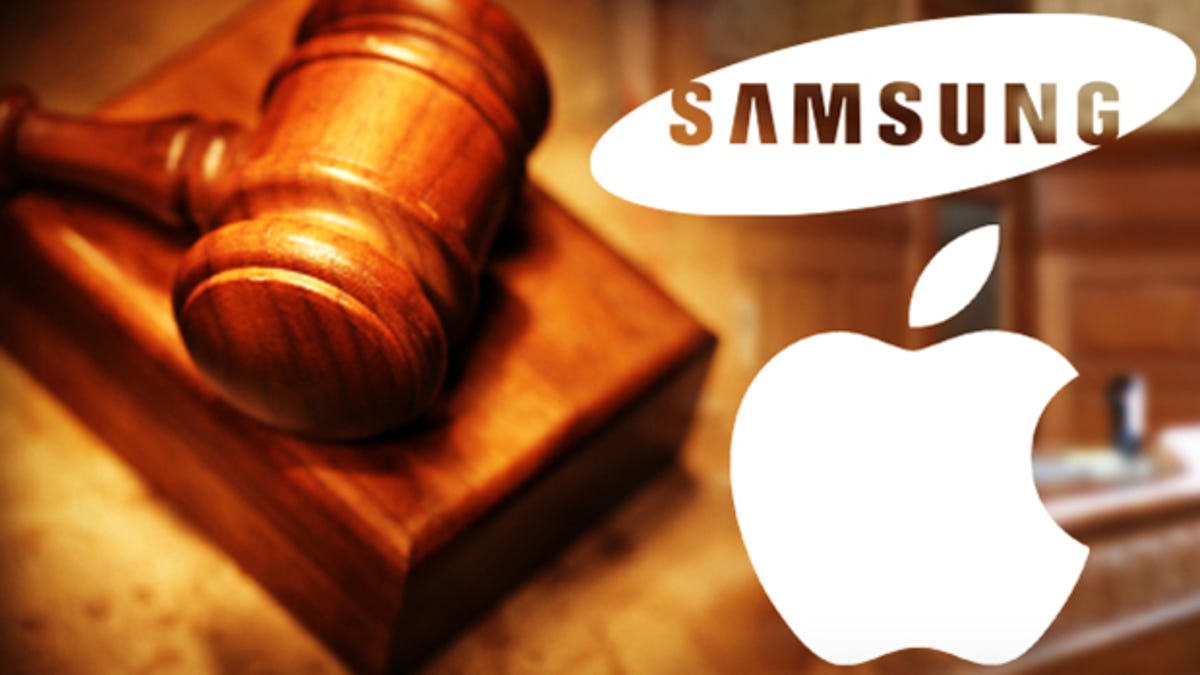Samsung won't talk settlement with Apple? Yeah, right
Samsung's says it won't negotiate a settlement deal with Apple in its wide-reaching legal battle. Legal watchers think otherwise.

Samsung's insistence that it has no plans to negotiate a settlement with Apple may simply be a head fake in a long-running legal game between the two companies.
It's foolish to rule out the possibility of peace between the two given how far the fight's gone and how much is still left to sort out legally,say intellectual property and legal experts.
"When it's all said and done, they have so many litigations, in so many geographies, with billions of dollars at risk," says Richard Ehrlickman, the president and founder of patent brokerage firm IPOfferings. "Eventually there will be a settlement and a licensing deal, and will allow money to flow from one party to another."
The myriad lawsuits involving iPhones, iPads, and Galaxy smartphones and tablets is ultimately a proxy for an increasingly bitter rivalry between Apple and Google's Android operating system, which has taken a dominant position in the smartphone market. The legal clashes, which have roped in Apple and several key Android partners, have rattled and distracted the industry. A glimmer of hope that the industry-wide fighting would end appeared when Apple and HTC agreed to drop their swords, leaving some waiting for Samsung to follow suit.
In the meantime, the longer the litigation is drawn out, the more threat there is for it to become a distraction in each company's research and development teams, says Ehrlickman -- who spent 15 of his 30 years at IBM as a VP of intellectual property and licensing. The end result could be stifled creativity and stagnation of future product designs, he warns.
"There are engineers, R&D folks, and internal counsel spending an extraordinary amount of time on litigations, and it takes an enormous amount of time to build new products and make new money," says Ehrlickman.
One thing that could slow that from happening in the near term is that both parties have massive collections of patents, and plenty of money to burn on legal fees. Apple, for instance, closed out its fiscal 2012 with more than $121 billion in cash and other securities, enough to make the $1.05 billion it was awarded from Samsung by a California jury earlier this year look like a drop in the bucket.
"What sometimes get lost is that Motorola, Google, Microsoft, and Apple all have huge war chests. They can ride these battles. The small guys can't do that," says Notre Dame law professor Mark McKenna, who has been watching the various patent spats closely. "They can't play this kind of game without several billion dollar portfolios."
That's largely why Apple and HTC settled their differences, prompting renewed interest in a similar deal between Apple and Samsung, which are rivals in smartphones, tablets, and computers, but also share a multibillion dollar a year business relationship.
The Taiwanese electronics company was the first to be targeted by Apple for smartphone patent infringement in a way that really went after Google's Android operating system, which late Apple co-founder Steve Jobs believed to be a ripoff of its own iOS platform. As part of the deal both sides dropped their lawsuits, and struck a 10-year patent licensing agreement. McKenna warns that a direct settlement comparison to what's been going on with Samsung is too simplified.
"Apple had some unique leverage on HTC compared to some of the other cases," says McKenna. "They persuaded the International Trade Commission to block sales. That's favorable leverage, and at some price, Apple was willing to license some of the patents."
When it comes to that happening with Samsung, some of the groundwork has already been laid. The two companies met to talk settlements ahead of and during a high-stakes U.S. trial, which was decided in Apple's favor by a California jury in late August.
Apple CEO Tim Cook and Samsung CEO Kwon Oh Hyun had a court-mandated conversation just ahead of the closing arguments in that trial, which lawyers on Samsung's side said did not result in any changes. That in itself was a follow-up to an in-person meeting between the chiefs of both companies in a settlement conference with a magistrate judge in San Francisco earlier in the year. Pre-dating both was a settlement offer from Samsung, which made in an attempt to quell the spat between the two companies in Australia over Samsung's Galaxy Tab 10.1.
While its clear that series of talks didn't lead to a settlement, the landscape has changed quite a bit since then.Samsung now faces a sales ban on at least eight of its smartphones in the U.S., something that is to be decided at a hearing next month. Apple is also attempting to raise the damages tally and could pull in other products that it believes to infringe into that ban.
"As we see the December 6 ruling, that will start to indicate to Apple how strong the judge's ruling's going to be from an injunction which gives them a huge leverage, and Samsung will then start to make a judgement of 'what do I have to change to my current phones?'" Ehrlickman said. "Over the course of the next six months to a year, there's a high likelihood that they'll just create a settlement."

